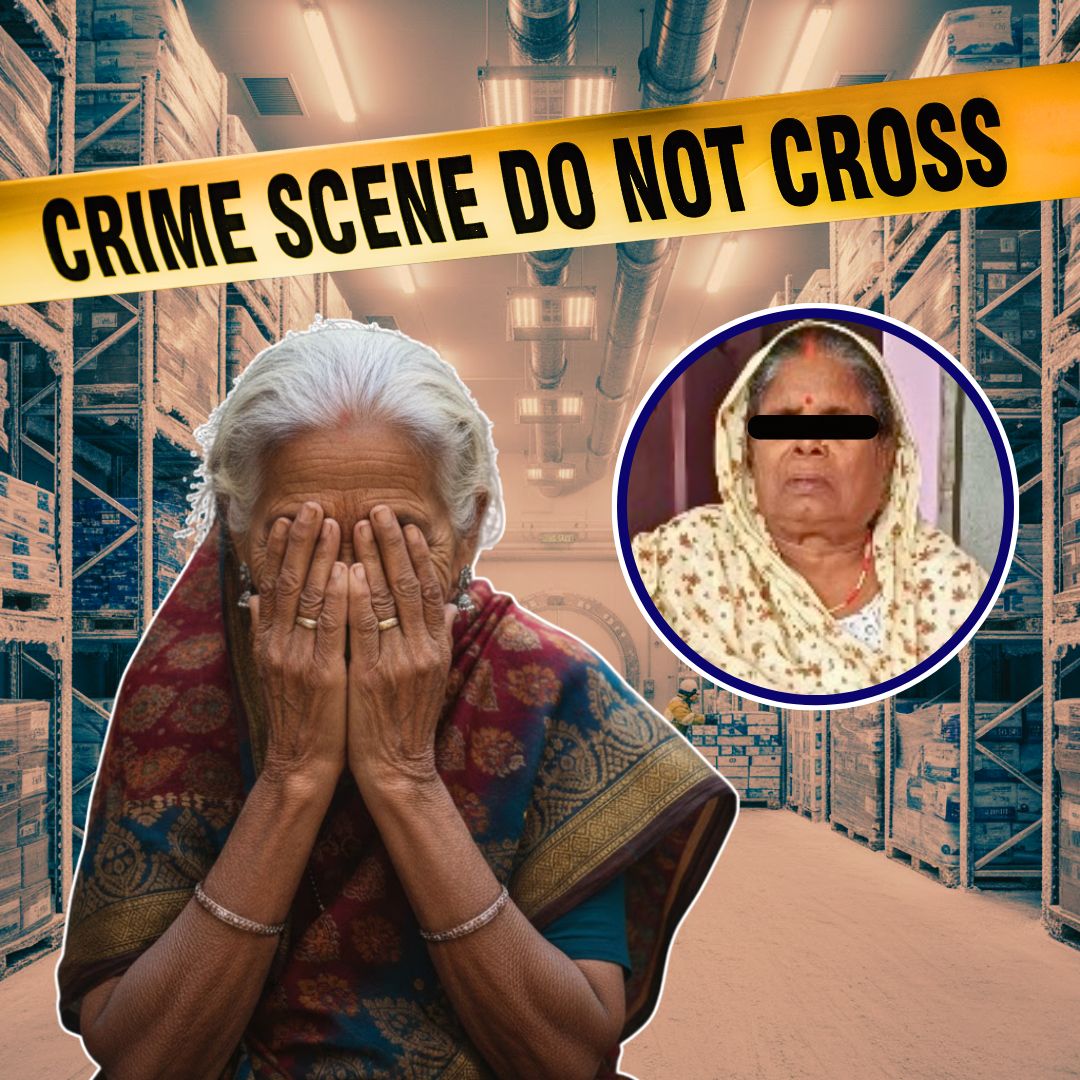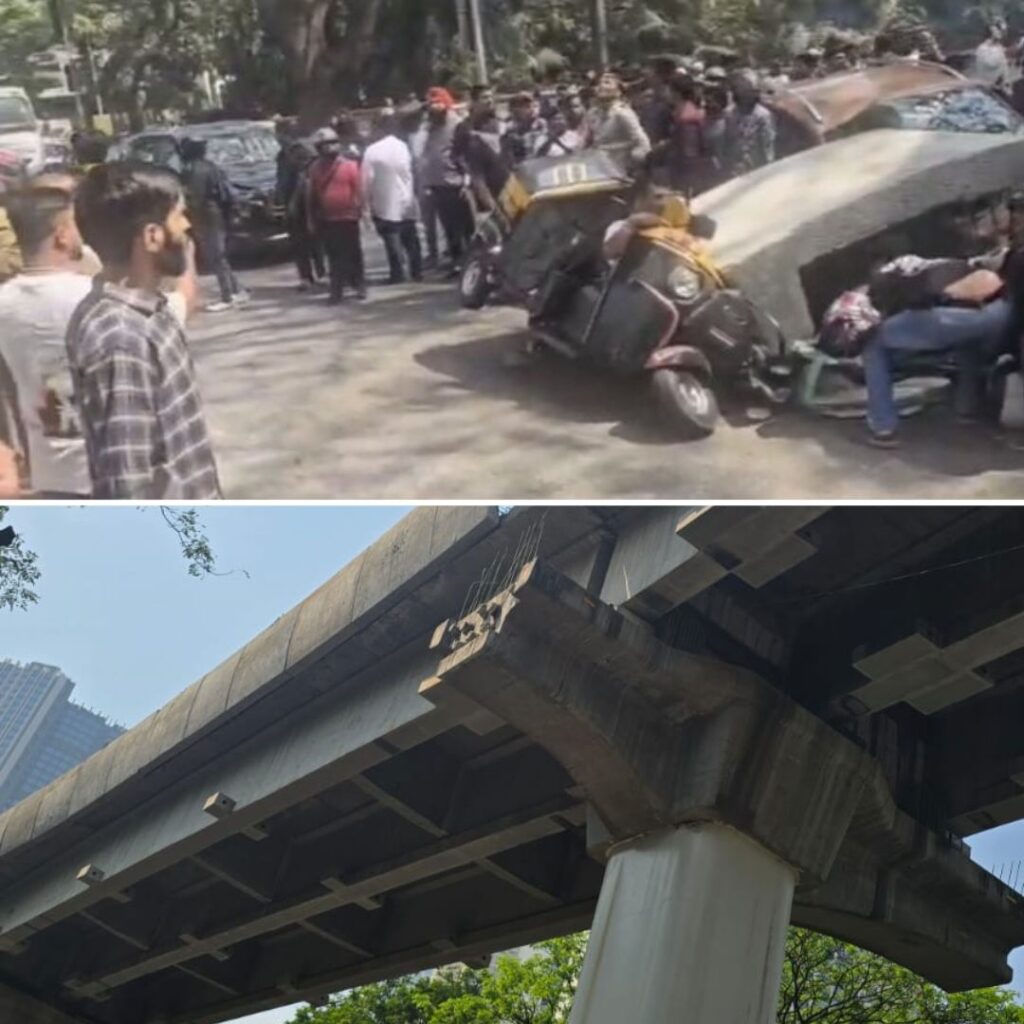At an old-age home in Jaunpur, 65-year-old Shobha Devi, originally from Gorakhpur, passed away on 19 November 2025 after a prolonged illness. What followed her death left many shocked and disturbed when her elder son refused to bring her body home, instructing the old-age home staff to keep it in a deep freezer for four days due to a wedding at their house.
He said that bringing the body during the celebrations would be inauspicious, and he would only take it after the wedding was over. This cold, callous reaction from her family stunned the staff and deeply hurt Shobha Devi’s husband, Bhual Gupta.
Eventually, other relatives intervened, and the body was taken to Gorakhpur. Instead of being cremated promptly, it was reportedly buried with claims that it would be exhumed and cremated after the wedding ceremony, sparking public outrage about elder care and family responsibility.
Forced To Seek Refuge In An Old-Age Home
Shobha Devi and her husband Bhual Gupta had been living in the Jaunpur old-age home for about a year after a family dispute uprooted them from their home in Gorakhpur. Bhual, a grocery trader from Bharoiya village in the Campierganj area, and Shobha Devi were abandoned by their elder son and daughter-in-law, who labeled them a burden and asked them to leave.
Distressed, the couple even tried to end their lives together by attempting suicide near a railway track but were advised by bystanders to seek help in other cities. After wandering in Ayodhya and Mathura with no support, they finally found shelter in the old-age home run by social worker Ravi Kumar Choubey, who took them in and provided care.
During her stay, Shobha Devi suffered from severe health complications, including leg ailments and kidney issues, that were being medically treated at a private hospital.
However, on 19 November, her condition deteriorated and she passed away while undergoing treatment. The news was relayed by Bhual to their younger son, who then consulted the elder son.
It was the elder son’s shocking demand-to keep the body frozen for four days due to a wedding and superstitions about bad omens-that stunned the caregivers and husband alike.
Family Neglect And Cruel Disrespect
The behavior of Shobha Devi’s sons reflects a troubling trend of neglect and disrespect faced by many elderly parents, especially those caught in familial disputes and property issues.
Despite the suffering of their parents and the support provided by the old-age home, the elder son showed a callous disregard for his mother’s dignity in death.
The old-age home head, Ravi Kumar Choubey, expressed anguish over the son’s cold refusal to take the body and described how none of the family ever visited during Shobha Devi’s stay at the shelter, highlighting how elders can become sidelined even in their families.
When other family members were informed of the death, some expressed wishes to see the mother one last time. After the four-day freezer mandate, the body was finally transported from Jaunpur to Gorakhpur.
However, instead of the customary immediate cremation, the elder son had the body buried temporarily. The husband Bhual was informed that this burial was interim and that the body would be exhumed and subjected to last rites after the wedding.
This revelation added to the distress and anger of the community and raised serious questions about elder care, respect for traditions versus superstition, and family responsibility.
Laws Protecting Elderly in India
India has established several legal frameworks aimed at protecting the rights and welfare of senior citizens. The cornerstone legislation is the Maintenance and Welfare of Parents and Senior Citizens Act, 2007, which mandates that children and legal heirs provide financial support and care for their elderly parents.
This act also establishes mechanisms such as tribunals to ensure maintenance payments and protection from neglect or abuse. It requires state governments to establish old-age homes in every district to provide shelter and healthcare facilities to indigent seniors.
The 2019 amendment to the Act expanded definitions to include adoptive and step-children, and in-laws, and introduced special police units to address crimes against elder citizens. Additionally, the Act mandates hospitals, including private ones, to provide dedicated senior citizen services like priority queues and geriatric care.
Beyond this, India is currently working on a new National Policy for Senior Citizens, expected to address emerging challenges such as digital inclusion for accessing healthcare and pensions, and mechanisms to combat elder abuse and neglect more robustly.
The government runs schemes like the Indira Gandhi National Old Age Pension Scheme (IGNOAPS) and Rashtriya Vayoshri Yojana, providing pensions and aids to enhance the quality of life for the elderly. Health insurance under the Ayushman Bharat Pradhan Mantri Jan Arogya Yojana (AB-PMJAY) now covers older adults with benefits extended to those above 70 years.
Despite these provisions, incidents like the one involving Shobha Devi reveal gaps in enforcement and societal attitudes towards elders. Legal obligations exist to maintain and protect senior citizens, but social responsibility also must be strengthened culturally.
These laws represent critical tools to ensure dignity, care, and protection for the elderly population in India’s evolving socio-demographic landscape.
The Logical Indian’s Perspective
This heartbreaking incident is an urgent call for society to address the growing crisis of elder neglect and dehumanization in India. When family disputes, superstitions, and a pursuit for social convenience overshadow the basic dignity of elderly parents, the consequences are both tragic and shocking.
The Logical Indian firmly believes no cultural ritual or superstition justifies denying an elder their rightful respect in life or death. It is imperative for community leaders, authorities, and families to foster a culture of empathy, responsibility, and kindness towards the elderly.
Legal and social frameworks must be strengthened to protect elders from abandonment, and families must be sensitised about their duties.












